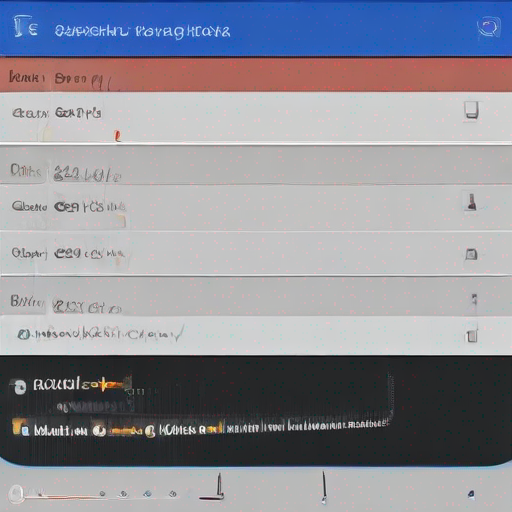Mastering Keyword Research for SEO Success: A Comprehensive Guide to Google My Keyword Planner
As an SEO enthusiast, you’re well aware that keyword research is a crucial step in creating a successful online marketing strategy. With millions of searches taking place every minute, identifying the right keywords can make all the difference between driving traffic and falling flat. In this article, we’ll delve into the world of Google My Keyword Planner, exploring its features, benefits, and best practices for mastering keyword research.
What is Google My Keyword Planner?
Google My Keyword Planner is a free tool provided by Google Ads (formerly Google AdWords) that helps you discover the most relevant keywords for your website or business. By analyzing search data and trends, this powerful tool allows you to identify the best keywords to target, increasing your chances of ranking higher in search engine results pages (SERPs).
Features and Benefits
Google My Keyword Planner offers a range of features that make it an indispensable tool for SEO professionals:
- Keyword suggestions: Get instant access to relevant keyword ideas based on your existing website content or business niche.
- Search volume estimation: Discover the average monthly search volume for each suggested keyword, helping you prioritize your optimization efforts.
- Competitor analysis: Identify the keywords and phrases your competitors are targeting, giving you valuable insights into their SEO strategies.
- Ad targeting: See which demographics, interests, and behaviors are associated with each suggested keyword, allowing you to tailor your ad campaigns more effectively.
- Keyword grouping: Organize related keywords into groups, making it easier to analyze trends and identify opportunities.
Best Practices for Mastering Keyword Research
To get the most out of Google My Keyword Planner, follow these best practices:
- Start with a solid foundation: Use the tool’s keyword suggestions feature to generate ideas based on your existing content or business niche.
- Prioritize relevance: Focus on keywords that are highly relevant to your target audience and align with your brand’s values and messaging.
- Analyze search volume: Use the search volume estimation feature to identify the most popular keywords, ensuring you’re targeting high-traffic phrases.
- Conduct competitor research: Analyze your competitors’ keyword strategies using the competitor analysis feature, helping you stay ahead of the competition.
- Refine and iterate: Continuously refine your keyword list based on search volume data, ad targeting insights, and competitor analysis.
Google My Keyword Planner vs. Other Tools
While Google My Keyword Planner is an excellent resource for SEO professionals, it’s not the only game in town. Here’s a comparison with other popular keyword research tools:
| Tool | Features | Pricing |
|---|---|---|
| Ahrefs | Keyword suggestions, search volume estimation, competitor analysis, and more | $99-$499/month (depending on plan) |
| SEMrush | Keyword suggestions, search volume estimation, competitor analysis, and more | $99.95-$449.95/month (depending on plan) |
| Moz Keyword Explorer | Keyword suggestions, search volume estimation, competitor analysis, and more | $99-$249/month (depending on plan) |
Conclusion
Mastering keyword research is a crucial step in creating a successful SEO strategy. By leveraging the features and benefits of Google My Keyword Planner, you’ll be well on your way to identifying the most relevant keywords for your website or business. Remember to prioritize relevance, analyze search volume, conduct competitor research, and refine your list regularly.
Key Takeaways
- Use Google My Keyword Planner to discover relevant keyword ideas based on your existing content or business niche.
- Prioritize relevance when selecting keywords, focusing on phrases that align with your brand’s values and messaging.
- Analyze search volume data to identify the most popular keywords and ensure you’re targeting high-traffic phrases.
- Conduct competitor research using the competitor analysis feature to stay ahead of the competition.
- Continuously refine your keyword list based on search volume data, ad targeting insights, and competitor analysis.
Table: Google My Keyword Planner Features
| Feature | Description |
|---|---|
| Keyword Suggestions | Get instant access to relevant keyword ideas based on your existing website content or business niche. |
| Search Volume Estimation | Discover the average monthly search volume for each suggested keyword, helping you prioritize your optimization efforts. |
| Competitor Analysis | Identify the keywords and phrases your competitors are targeting, giving you valuable insights into their SEO strategies. |
| Ad Targeting | See which demographics, interests, and behaviors are associated with each suggested keyword, allowing you to tailor your ad campaigns more effectively. |
| Keyword Grouping | Organize related keywords into groups, making it easier to analyze trends and identify opportunities. |
Want to learn more? Visit google my keyword planner for expert insights on how to optimize your website’s search engine rankings using Google My Keyword Planner.

